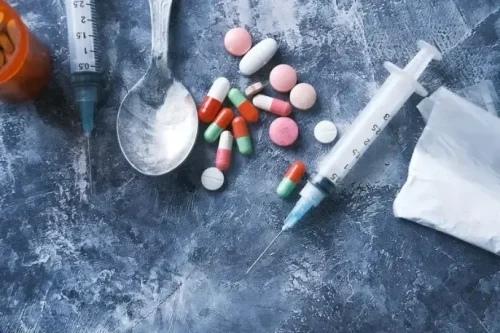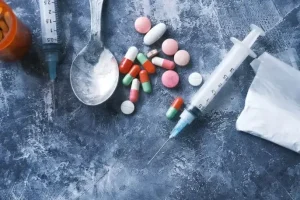
This involves discussing a clear plan that outlines expectations and future commitments. By working together, both parties can address past grievances and align goals, ensuring a shared commitment to restoring trust. As the relationship evolves, staying connected with a support network can also provide valuable guidance and reassurance. These steps will support your journey towards rebuilding trust and relationships during recovery. Owning your mistakes and acknowledging the harm caused by past behaviors is vital. Apologize sincerely without making excuses, demonstrating that you understand the impact of your actions.

How Luxury Treatment Programs Support Dual Diagnosis Patients
- If the person you’ve just made amends with does not accept them, don’t let that take away from the purpose.
- Going by this take, you can think of living amends as a replacement for direct amends in step nine.
- By maintaining honesty, individuals can confront their addiction without the guilt or shame that often accompanies lies.
- Discover proven ways to beat boredom in addiction recovery through hobbies, community, and new skills.
This self-reflection not only fosters personal growth but also prepares the ground for rebuilding trust with loved ones. The journey begins with a thorough examination of one’s past behavior and the impact it had on others. This introspective step is essential for identifying the people affected by one’s actions and acknowledging the harm caused. Once the harm has been recognized, the next step is to formulate a plan to repair the damage.
Family Support in Battling Bipolar Disorder and Addiction

However, you can still take action in all of these situations to satisfy the spirit and the intent of Step 9 and progress in your step work. Demonstrating responsibility is essential for proving your commitment to change. Show that you can keep commitments, such as attending family events or adhering to household rules. Consistency in your actions will help rebuild their trust over time. Advanced Addiction Center is here to support you on your journey.
How to Address Peer Pressure Without Resorting to Substance Use
Personal integrity involves consistently aligning one’s actions, thoughts, and words with deeply held moral values, which is crucial in overcoming addiction’s deceptive nature. This narrative explores the importance of integrity throughout the recovery process, providing insights and strategies to help individuals navigate this pivotal aspect of healing. This process is described in steps 8 and 9 of the 12-Step Program. When you struggle with substance use addiction, taking the first steps to learn how to begin the amends process is admitting you need help and starting your recovery journey. At Buckhead Behavioral Health in Atlanta, we are here to help you take those first steps with our custom-tailored treatment programs that teach you living amends how to make amends and live a sober lifestyle.
It’s about taking responsibility for your actions and demonstrating your commitment to personal growth and change. This process is about you making things right from your side, regardless of how the other person responds. People in recovery often struggle with steps 8 and 9 because substance use disorder often comes with destructive behaviors and actions. It makes people do and say things they otherwise wouldn’t without the influence of drugs or alcohol, and these actions often hurt the people around even if inadvertently.

Maybe you became flakey and stopped answering a friend’s messages or spending time with him or her. An indirect amend would mean realizing that your action was wrong and then changing your behavior. You would change the way you treat people in relationships and ensure you’re being a good counterpart. In the 12 Steps, there are several mentions of the necessity for making amends in your recovery. Properly learning how to carry out these steps is a delicate process that is best carried out with the advice of an addiction counselor. Jose Hernandez, for over a decade, has been involved in alcohol and addiction recovery helping people succeed in overcoming substance abuse and regaining control of their lives.
Detox: Regaining Clarity and Focus for a Brighter Future

Open communication is key; individuals should approach conversations with honesty, express remorse, and actively listen to the feelings of those impacted. This approach helps in establishing transparency and reinforces genuine intentions. By taking responsibility for your actions and making amends, you can begin to heal relationships and rebuild your life. Remember, the journey of recovery is unique for everyone, and there is no right or wrong way to approach Step 9. Following Step 8 of NA, where you create a list of all the people you’ve harmed through your addiction, Step 9 focuses on directly taking responsibility for those actions. This involves what is Oxford House making a genuine effort to apologize and attempt to repair the damage you’ve caused.
- Addiction often leaves behind broken trust and hurt feelings.
- Well, the difference lies in the effort put behind each action.
- Recovery from addiction is more than just stopping the use of drugs or alcohol.
- Direct amends involve actively apologising and repairing the harm we’ve caused.
- Examples of making amends could be doing volunteer work, paying off an old debt, making a public apology, etc.
Anticipating emotional reactions is crucial when making amends. Even if you plan your conversation, the other person’s response might be unpredictable. Allow them to express their feelings, and validate their experiences without becoming defensive. Our advisory board brings together leaders in behavioral health, technology, and business. Their diverse expertise ensures our resources and product are innovative, evidence-based, and effective. They guide our mission as accomplished individuals dedicated to improving the landscape of addiction recovery and mental wellness.
Counselors often assist individuals in addressing past mistakes. This process encourages empathy and understanding, which can restore self-worth. The National Institute on Drug Abuse reports that individuals who engage in ongoing therapy and recovery steps have a 40% to 60% likelihood of achieving lasting success. Individuals should not feel pressured to make amends immediately. Taking time to process one’s journey and grow personally is more beneficial.
